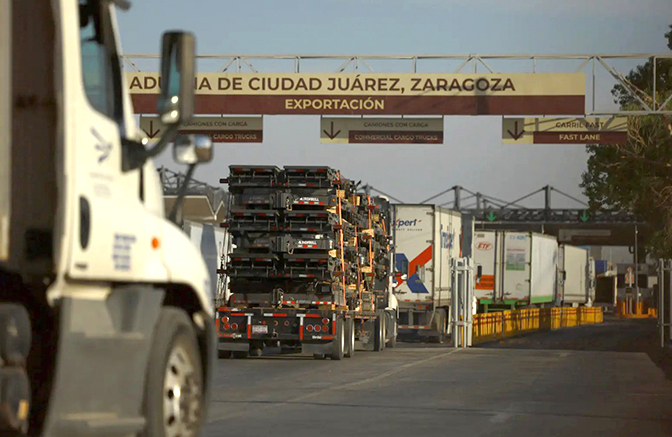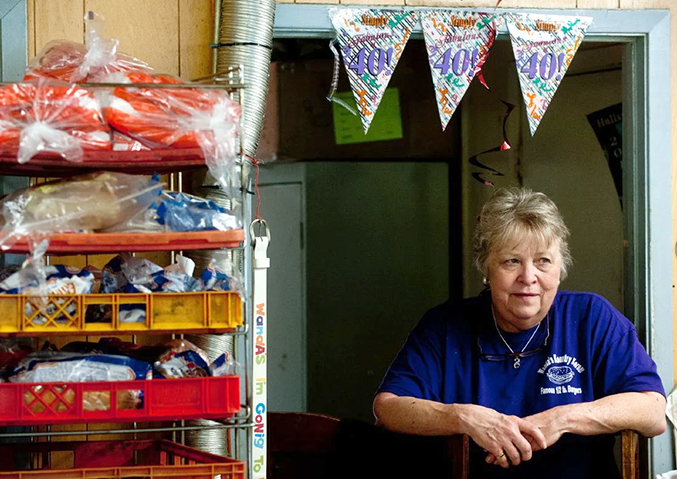August increase in Mexico tariffs could strain Texas economy
Published 10:35 pm Saturday, July 26, 2025
Importers and exporters based in Texas have so far avoided the harshest effects of the trade war sparked by President Donald Trump’s tariffs on imports from a host of countries, but they could be in for a rude awakening.
Mexico, Texas’ largest trading partner, has been largely exempt from tariffs due to a March agreement that allowed an estimated 85% to 90% of all Mexican goods to avoid the 25% tariff the Trump administration placed on its imports.
However, Trump earlier this month informed Mexico, two dozen other countries and the European Union that their exports will face an increase in the tariffs on their goods unless they quickly negotiate new trade deals with the U.S. Trump’s letter to Mexican President Claudia Sheinbaum Pardo promises to raise the rate against the country to 30% on Aug. 1 and makes no mention of extending the spring agreement exempting most Mexican imports.
Trending
“When we talk about the possibility of a 30% tariff, that is a game changer,” said Dante Galeazzi, CEO and President of the Texas International Produce Association. “It’s vastly different from where we are at today.”
Galeazzi’s organization represents 400 Texas companies throughout the produce supply chain that grow or import $13 billion worth of produce annually. Galeazzi said the relationship between Texas and Mexico is particularly close in the produce industry because most large farms have a footprint in both places to be able to grow year round.
Two-way trade between the U.S. and Mexico totaled $840 billion last year, making Mexico America’s largest trading partner. Texas traded a total of $281 billion with Mexico in 2024, according to the Office of the United States Trade Representative.
At issue is the United States-Mexico-Canada Agreement, negotiated by the three countries during Trump’s first term, which aimed to eliminate trade barriers and level the playing field between the three countries’ labor and manufacturing sectors.
In March, two months into Trump’s second term, U.S. trade policy with its two biggest trading partners has see-sawed dramatically, briefly putting in place a 25% tariff on Mexican and Canadian goods before a deal was announced two days later to exempt all USMCA-compliant goods from the tariff.
Those two days saw financial markets tumble and sent shockwaves through the economies of all three nations. Caught in the middle of the trade war was the Texas economy.
Trending
“Back in March was super difficult, super stressful, lots of preparation getting ready for it,” said Craig Slate, CEO and president of Arizona-based Mexican produce importer SunFed, which operates in Texas. “We’ve already been through a dress rehearsal, let’s say, so the preparation is kind of already in place.”
Trump cited the flow of fentanyl across both the northern and southern borders as the basis for the tariffs in March, arguing neither country was doing enough to stop it. Mexico and Canada promised retaliatory tariffs. Then, the deal was announced to exempt most goods traded between the three countries from the tariffs for 30 days and later extended a further 90 days in April.
That 90-day extension is now coming to an end, and Trump is promising to bring the tariffs back on Monday. Economists fear the economy could again face difficulties like those seen in March because the tariff rate for most trade in North America could effectively jump from 0% to 30% if the USMCA exemptions are not kept in place.
“It’s going to be devastating to U.S.-Mexico trade,” said Ed Hirs, an economist and energy fellow at the University of Houston. “This will be a very, very difficult realignment because the companies in the U.S. that depend on Mexican suppliers are going to have to make some hard decisions.”
For SunFed, the effect of the jump in tariffs could be painful, Slate said. As the “importer on record” for farmers in the Mexican states of Sonora and Sinaloa, SunFed is the company that pays the tariff to the U.S. government on its imported goods, which includes watermelons, squash, bell peppers, cucumbers and cantaloupe.
The nature of the produce supply chain will likely allow the cost of that tariff to be partially spread among SunFed, the Mexican farmers it works with, the grocery stores SunFed sells to, and the consumers who buy the produce, Slate said.
Rather than shoppers seeing large price increases at the grocery store if the tariffs remain in place for an extended period, Slate said he believes it’s more likely they will see shortages of certain products in the future because farmers or importers will decide it’s not worth the financial risk of importing products to the U.S.







